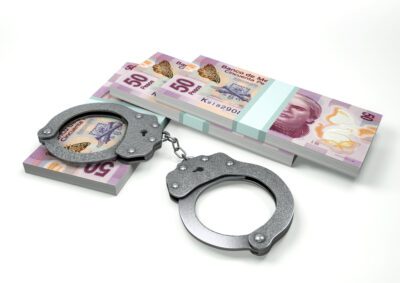The UK gambling industry is bracing to face more upheaval as what began as a plan to streamline online gambling taxes is fast becoming a full-scale revenue grab.
UK Chancellor Rachel Reeves is under pressure to fill a £20 billion shortfall (US$26.57bn) in the government’s Autumn Budget by increasing remote gambling taxes – a move that industry experts warn could risk “killing the golden goose” and spell the demise of British horseracing.
The government’s 12-week consultation–which closed on July 21–initially proposed to “harmonise” remote gaming and betting taxes under a single (but undisclosed) rate for all online gambling activities.
Currently, a three-tier system is in place, with remote betting and pool betting taxed at 15 percent on gross gambling yield (GGY) and online gaming, including slots and casino, taxed at 21 percent.
Until now, it had been assumed that taxes would be unified at the current top rate of 21 percent.
Pressure
But pressure to hike taxes by much bigger margins is building from MPs within the All-Party Parliamentary Group for Gambling-Related Harm (APPG) and the influential Social Market Foundation (SMF) think-tank.

The SMF and MPs, like Alex Ballinger, argue that products that cause the most harm should bear the heaviest tax burden.
And SMF Director Theo Bertram–according to paper-of-record The Financial Times–has urged Reeves to: “Support higher taxes [for] the most harmful forms of gambling.”
Concurrently–perhaps in a belated attempt to help the popular but struggling “Sport of Kings”–the thik-tank is also arguing that horse racing taxes should drop to five percent from its current 15 percent base level.
Backlash
Not surprisingly the proposed tax rises have triggered consternation across the gambling industry.
Boosters argue that levies this high would be “unsustainable” for the UK’s £15.6 billion gambling industry (US$20.71bn), which already contributes almost £4 billion in taxes annually (US$5.31bn).
And they say that such swingeing tax hikes would prompt market exits, reduce competition and increase offshore activity.
In a current LinkedIn post, Alun Bowden of Eilers and Krejcik Gaming consultants, cautioned that even if taxes were raised to a more moderate rate of 35 percent–in line with many European jurisdictions– the UK would become “unprofitable for most operators”.
The British Horseracing Authority (BHA), meantime, has also warned about the potential impact of tax increases.
They have commissioned research that concludes [the proposed changes pose] “one of the gravest risks to horseracing the sport has ever seen”.
According to the BHA, even a rise to 21 percent would cost the horse racing industry £330 million (US$438.13m) in lost revenue over five-years and threaten some 2,800 jobs in the first 12-months alone.
Zero Protection

“We can’t support proposals driven more by politics than by evidence, especially when they risk pushing customers into the unsafe, unregulated black market where there are zero protections and no tax is paid,” she stressed.
“Let’s be clear: Any significant tax increase would put jobs at risk, reduce investment, and damage businesses.
“Hitting the sector with higher taxes won’t help problem gamblers. But it will undermine funding for sport, cut safer gambling initiatives, and drive customers to illegal black market sites.
Trepidation
“It’s a lose-lose scenario.”
Hurst added: “It’s wrong to suggest you can carve out products without damaging the entire ecosystem. Our members don’t ringfence online games from sports betting. It’s one customer base, one business model.”
Critically, many of the proposals by anti-gambling campaigners ignore the danger of the illicit market.
And they show a fundamental misunderstanding of how the modern betting and gaming sector actually operates.
Indicatively–despite repeated attempts–none of the members of the parliamentary APPG or SMF think-tank–responded to iGF’s requests for comment on this most pressing financial issue facing the UK’s gambling industry.
We wait, with some trepidation, the UK Treasury’s potentially game-changing Autumn Budget.




